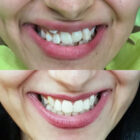The link between diet and dental health is often overlooked, but what you eat plays a significant role in the condition of your teeth and gums. Understanding how diet affects dental health can help you make informed choices that promote a brighter, healthier smile. In this blog, we’ll explore the foods to avoid and those to embrace for optimal dental health.
The Impact of Diet on Dental Health
How Diet Influences Oral Health
Your diet directly affects the health of your teeth and gums in several ways:
1. Plaque Formation: Sugary and starchy foods can contribute to the formation of plaque, a sticky film of bacteria that forms on teeth. When plaque isn’t removed through regular brushing and flossing, it can lead to tooth decay and gum disease.
2. Acid Production: Many foods and beverages, especially those high in sugar and acidity, can lead to acid production in the mouth. This acid can erode tooth enamel, increasing the risk of cavities and sensitivity.
3. Nutrient Deficiencies: A diet lacking in essential nutrients can weaken your immune system, making it harder for your body to fight off infections, including gum disease. Nutrients like calcium, vitamin D, and vitamin C are particularly important for maintaining healthy teeth and gums.
Foods to Avoid for Better Dental Health
1. Sugary Snacks and Sweets
Candy, cookies, cakes, and other sugary treats are some of the worst offenders for dental health. The sugar in these foods feeds the bacteria in your mouth, leading to plaque formation and, ultimately, cavities. Sticky candies are particularly problematic as they adhere to teeth, prolonging sugar exposure.
2. Sugary Beverages
Soft drinks, fruit juices, and energy drinks are often loaded with sugar and acids that can erode tooth enamel. Even so-called “healthy” juices can be high in sugar, making it crucial to consume them in moderation and rinse your mouth with water afterward.
3. Starchy Foods
Foods like potato chips, white bread, and pasta can break down into sugars in your mouth, contributing to plaque buildup. They can also become lodged between your teeth, making them harder to remove without proper brushing and flossing.
4. Acidic Foods and Drinks
Citrus fruits (like lemons and oranges), pickles, and vinegar-based dressings can wear down enamel over time. While these foods can be part of a healthy diet, it’s important to consume them in moderation and follow them with water to help neutralize acidity.
5. Alcohol and Tobacco
Alcohol can lead to dry mouth, which reduces saliva production. Saliva is essential for neutralizing acids and washing away food particles. Tobacco products, on the other hand, are linked to gum disease, tooth discoloration, and oral cancer. Avoiding these substances is vital for maintaining good oral health.
Foods to Embrace for Optimal Dental Health
1. Dairy Products
Dairy products like milk, yogurt, and cheese are excellent for dental health due to their high calcium and phosphorus content. These nutrients help strengthen tooth enamel and can even aid in remineralizing teeth. Cheese, in particular, can stimulate saliva production, which is beneficial for oral health.
2. Crunchy Fruits and Vegetables
Fruits and vegetables like apples, carrots, and celery are not only nutritious but also great for your teeth. Their crunchiness helps to scrub away plaque and stimulate saliva production, which helps neutralize acids in the mouth. They are also high in vitamins and minerals that support overall health.
3. Nuts and Seeds
Nuts and seeds are packed with nutrients, including healthy fats, protein, and essential minerals like calcium and magnesium. Almonds, for example, are a good source of calcium, while sesame seeds can provide minerals beneficial for your teeth and gums.
4 Whole Grains
Whole grains, such as brown rice, quinoa, and whole-grain bread, are less likely to contribute to plaque formation compared to their refined counterparts. They provide important nutrients and are generally lower in sugar, making them a better choice for your dental health.
5. Water
While not a food, staying hydrated with water is crucial for oral health. Water helps wash away food particles and bacteria, dilutes acids, and promotes saliva production. Drinking fluoridated water can also strengthen your teeth and help prevent cavities.
Conclusion
Your diet plays a critical role in your dental health, influencing everything from plaque formation to the strength of your teeth and gums. By avoiding sugary and acidic foods and beverages while embracing nutrient-rich options, you can significantly improve your oral health. Remember, a balanced diet not only benefits your teeth but also contributes to your overall well-being. For personalized dietary recommendations tailored to your dental health needs, consult with your dentist. Your smile will thank you!



